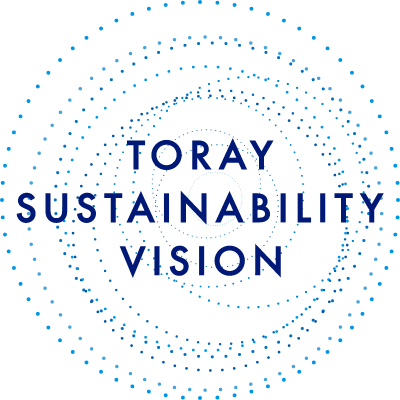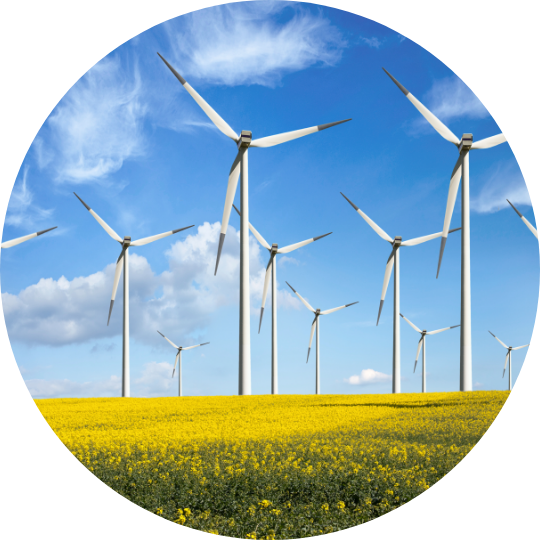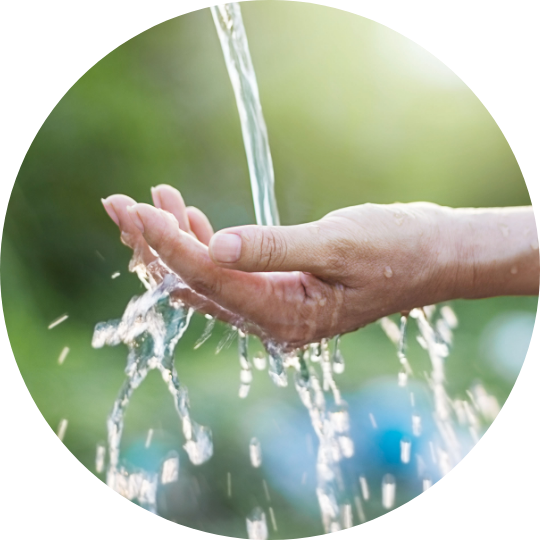- HOME
- Sustainability
- Toray Group Sustainability Vision
Toray Group Sustainability Vision

Providing Innovative Technologies
and Advanced Materials to Help Address Global Issues
At the Toray Group, we consider sustainability to be the most important global issue of the 21st century. Today, climate change, water scarcity, and resource depletion are just some of the mounting environmental challenges facing the planet. With the global population expected to increase to some ten billion people by 2050 and aging demographics on the increase worldwide, an interlinked web of global issues are posing ever-graver problems.
Since Toray’s founding in 1926, we have always believed that materials can change lives, true to our fundamental corporate principle of contributing to society. At the Toray Group, we make it our mission to deliver innovative technologies and advanced materials that provide real solutions to the challenges the world faces with balancing development and sustainability.
We are convinced that Toray can continue to grow without negatively impacting global sustainability. By delivering on our corporate philosophy of “contributing to society through the creation of new value with innovative ideas, technologies and products,” we will do our utmost to address global issues, including the goals of the Paris Agreement and the United Nations Sustainable Development Goals (SDGs), while working closely with our business partners worldwide.
Four Perspectives of the World as Envisioned by the Toray Group in 2050
Progress against the Commitments for 2030
The Toray Group is striving to achieve the following quantitative targets.
| FY 2013 Actual (Baseline) (J-GAAP) |
FY 2022 Actual7 | FY 2030 Target7 | |||
|---|---|---|---|---|---|
| Supply of Sustainability Innovation products1 | 562.4 billion yen | 2.3-fold | 4.5-fold | ||
| CO2 emissions avoided in value chain2 | 38 million tons | 9.5-fold | 25-fold | ||
| Water filtration throughput contribution by Toray’s water treatment membranes3 | 27.23 million tons/day | 2.5-fold | 3.5-fold | ||
| Greenhouse gas emissions in production activities4 | Per unit of revenue6 across the Toray Group | 337 tons/100 million yen | 35% reduction8 | 50% or more reduction | |
| Greenhouse gas emissions of Toray Group in Japan5 | 2.45 million tons | 21% reduction8 | 40% or more reduction | ||
| Water usage in production activities | Per unit of revenue6 across the Toray Group | 15,200 tons/100 million yen | 32% reduction8 | 50% or more reduction | |
- 1 (1) Products that accelerate measures to counter climate change; (2) products that facilitate sustainable, recycling-based use of resources and production; (3) products that help provide clean water and air and reduce environmental impact; and (4) products that help deliver better medical care and hygiene for people worldwide
- 2 Toray calculates the CO2 emissions reduced throughout the value chain of products in accordance with the chemical sector guidelines of the Japan Chemical Industry Association, the International Council of Chemical Associations (ICCA), and the World Business Council for Sustainable Development (WBCSD).
- 3 Water treated annually with Toray water treatment membranes. It is calculated by multiplying the amount of fresh water that the Toray membranes can produce per day, including reverse osmosis (RO), ultrafiltration (UF) and membrane separation bioreactors (MBR), by the number of membrane elements sold.
- 4 With the use of renewable energies and other zero emission power sources rising worldwide, the Toray Group aims to employ zero-emission power sources at a rate equivalent to or better than the targets in each country by fiscal 2030.
- 5 In Japan, Toray works to surpass the reduction target set for the industrial sector by the Japanese government (absolute emissions reduced by 38%) in its comprehensive plan (Cabinet decision on October 22, 2021) based on Japan’s Act on Promotion of Global Warming Countermeasures.
- 6 FY2013 results are based on net sales (J-GAAP)
- 7 Each relative ratio is calculated in comparison to FY 2013.
- 8 The calculation of the figure for the baseline of FY 2013 includes data for companies that joined the Toray Group in FY 2014 or later.




